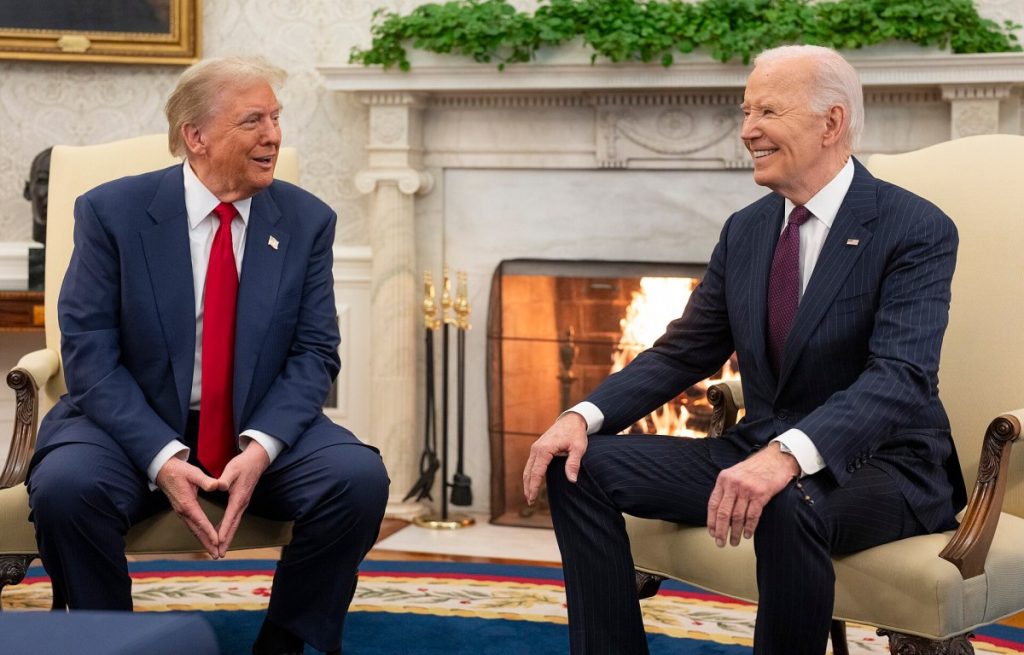If President-elect Donald Trump and techno-oligarch Elon Musk get their way, NASA — one of America’s crown jewels — may become a glorified contracting agency.
As Musk promises the American public “temporary hardship” as he looks to cut some $2 trillion from the federal budget — the equivalent of all spending outside Social Security, Medicare and interest on the national debt — Trump’s top space advisers talk openly about funneling even more public money to Musk’s SpaceX. If actually implemented, such proposals would give Musk a de facto monopoly over America’s commercial space industry, stifle healthy competition that fuels technological innovation and demoralize an already overtaxed NASA workforce.
Never mind that SpaceX remains well behind schedule when it comes to delivering a lunar lander derived from its Starship vehicle. Or that any lunar landing mission using Starship will require 17 launches of a booster rocket that has yet to complete one successful flight test. Or that it’ll need an as-yet untried on-orbit refueling method to reach the moon at all.
This reality makes it ludicrous to suggest, as Trump space advisor Gene Autry has done, that NASA simply contract out a human Mars mission to SpaceX. To put it bluntly, the company has not demonstrated the technical competence required to execute even less demanding missions.
NASA remains an irreplaceable and indispensable public agency. If Trump and Musk hollow it out, however, the United States will quickly find itself without any viable space program whatsoever.
Fortunately, though, Congress has the ability to prevent the incoming administration from dismantling NASA and effectively turning its activities over to one private company. Indeed, Congress has historically proven more than willing to exert its own authority when it comes to America’s space exploration priorities — and it should do so once again to protect NASA and ensure robust competition in America’s commercial space industry.
First, Congress can legally protect the Space Launch System — the only rocket able to send astronauts to the moon in one launch — from an executive branch firing squad. As it has done with specific types of military aircraft, Congress could prohibit NASA from stopping work on SLS or canceling already-signed contracts for future SLS rockets. Congress could also mandate NASA use SLS and the Orion crew vehicle for Artemis Program missions to the moon. Similarly, Congress could require the use of SLS for flagship-class robotic exploration missions to the outer solar system like the recently proposed Uranus orbiter and probe.
For all the compromises involved in its creation and design, SLS remains a unique capability that no other nation or private company can match — and one that has already proven itself.
Next, Congress can require NASA to contract with more than one company when it procures commercial space services. Such a move would preserve competition in the commercial space industry and preempt any attempt by Musk to entrench SpaceX as a de facto monopoly for commercial space services. Without real competition, innovation and quality control — vital in an enterprise as inherently dangerous as human spaceflight — will inevitably suffer.
Such dual-source contracting is already a best practice for NASA. Contracts for commercial cargo and crew missions to the International Space Station, for instance, have typically involved at least two companies. When funding concerns led the agency to award SpaceX and SpaceX alone a contract to build a lunar lander for Artemis, Congress stepped in to require NASA choose a second company to build a separate lunar lander.
To prevent the Trump administration from simply giving handouts to SpaceX, Congress should write this dual-source commercial contracting policy into law. Details will remain up to lawmakers, of course, but Congress should mandate that NASA award major commercial services contracts — cargo delivery to the ISS and its successors, commercial crew transportation to low-Earth orbit and human and robotic lunar landing services, to name a few — to at least two companies. That will in turn require additional resources so NASA can actually fund two commercial services contracts at once.
Finally, Congress should do whatever it can to shield NASA and its workforce from the ministrations of the so-called “government efficiency” effort co-chaired by Musk. It could use annual agency authorization and appropriations laws to legally require Musk to recuse himself from any role with any agency with which his companies have contracts or outstanding regulatory disputes. If Musk plays hardball right out of the gate, Congress could explicitly exempt NASA from the ambit of his committee’s work.
Likewise, Congress could also refuse to confirm any nominee for NASA administrator unwilling to support the agency’s existing plans and programs, especially its human spaceflight endeavors.
There are likely other ways Congress could protect NASA, of course, but it would be a tragedy of the highest order if Congress allowed the Trump administration to gut the agency. It’s not that NASA is perfect; indeed, it could stand to do business better and spend its money more wisely. But for all its flaws and faults, the agency remains one of the nation’s most precious assets — one that expands humanity’s knowledge of the cosmos and inspires us to look beyond our present circumstances.
NASA is an American crown jewel that deserves to be shielded from the depredations of would-be oligarchs — and right now, only Congress can give the agency the protection it needs.
Peter Juul is the director of national security at the Progressive Policy Institute. He has worked and written on national security, defense, and space policy in Washington, DC for almost twenty years.

